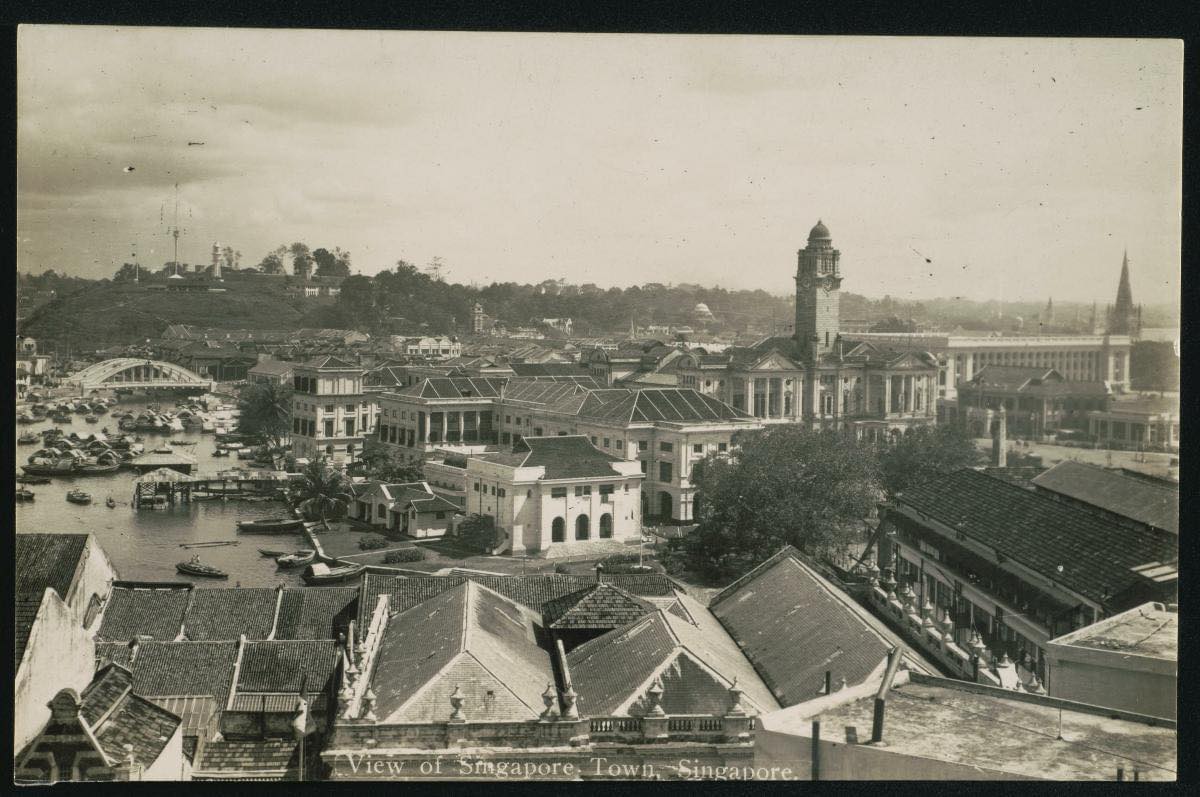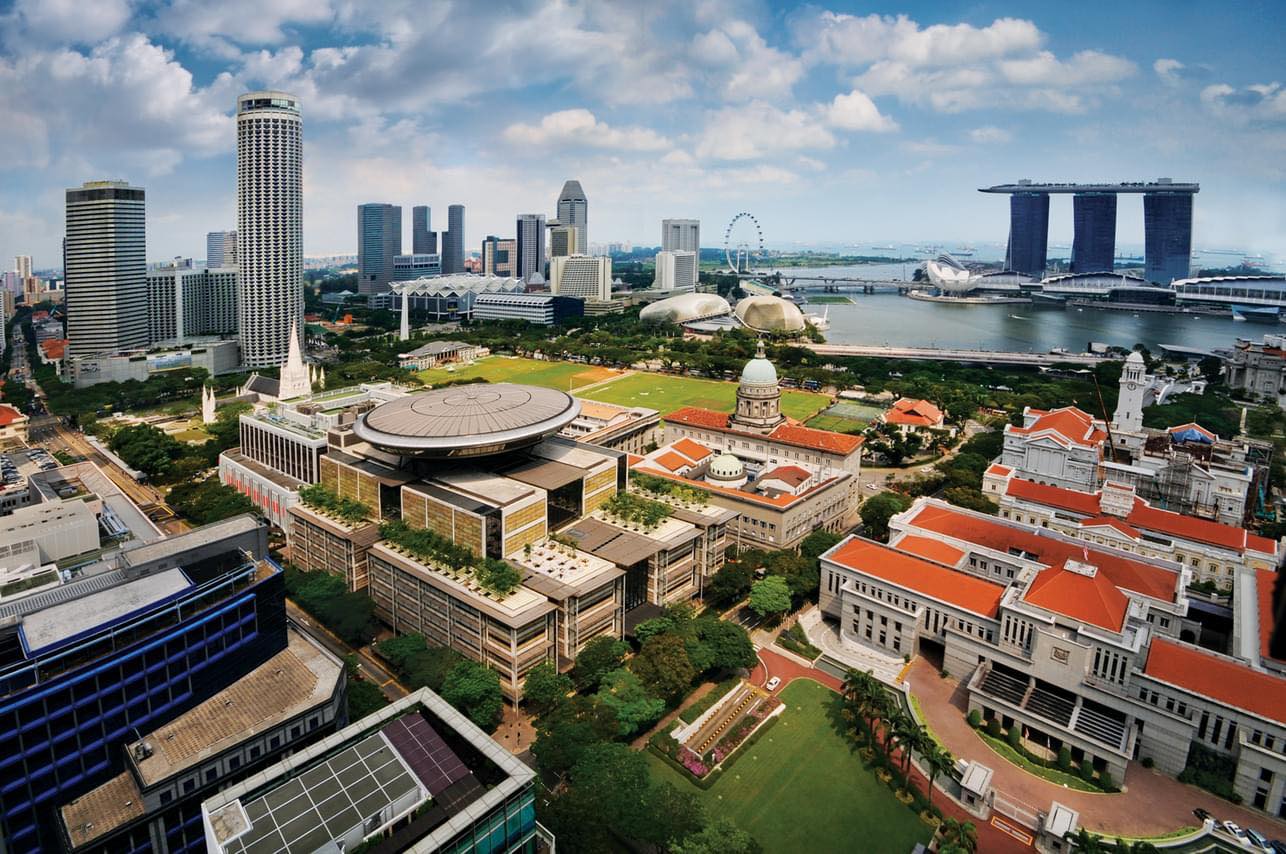Singapore's Civic District
 📷: The area around the Singapore River (1920s to 1930s) via Roots.gov.sg
📷: The area around the Singapore River (1920s to 1930s) via Roots.gov.sg
As early as the 13th century, the north bank of Singapore River was a special place. This was where a vibrant port-settlement known as Singapura (in indigenous Malay texts) or Danmaxi (in Chinese historical texts) emerged. The settlement engaged in regional and international trade and continued into the 16th century.
This space also held great significance in the 19th century. Here a modern port-city developed again, with Singapore River acting as the focal point of trading activities, drawing people from all over the region to trade and seek their fortunes. To address the needs of the port, new buildings were erected near the river bank bringing landmarks such as the former Supreme Court (later known as old Parliament House and today the Arts House), former Empress Place Building (today’s Asian Civilisations Museum), former Municipal Building (today’s National Gallery), and Town Hall (today’s Victoria Theatre and Concert Hall).
After World War II, monuments such as the Civilian War Memorial (also known to many as “The Chopsticks”), Lim Bo Seng Memorial, and the Cenotaph were also added to the area.
Today, we know the area which stretches from Fort Canning to the Singapore River and the seafront beyond the Padang as the Civic District. This place continues to bustle with life, and is home not only to many of Singapore’s historical building, national monuments and modern skyscrapers, but is also our arts, cultural, and lifestyle precinct.
In this post, we looked at what gives the area around the Singapore River meaning — how this space was made a place. There are certainly more places around Singapore, significant to us in one way or another to highlight. So keep an eye out at the start of every month for the coming year, for stories on what makes #OurNeighbourhood a special place.
#SGPlacemaking #Singapore
 📷: Aerial view of the Civic District (2011) via William Cho@Wikimedia Commons
📷: Aerial view of the Civic District (2011) via William Cho@Wikimedia Commons

